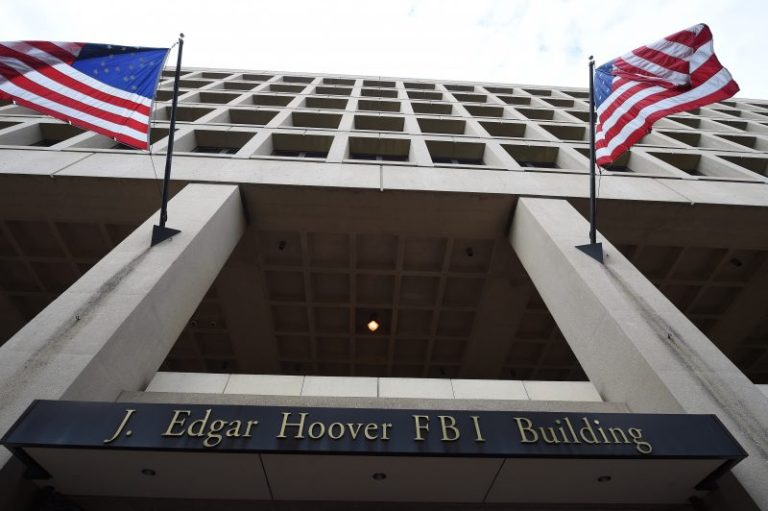Two FBI agents set to appear before a House subcommittee Thursday had their security clearances revoked this month over security concerns, according to a letter sent by the FBI to the House Judiciary Committee on Wednesday and obtained by The Washington Post.
The letter, signed by FBI acting assistant director Christopher Dunham and addressed to Rep. Jim Jordan (R-Ohio), the chairman of the committee, was responding to a subpoena from the Subcommittee on the Weaponization of the Federal Government that sought information regarding the security clearance adjudications of former FBI agent Stephen Friend and Marcus Allen, an FBI agent who is suspended without pay.
Friend and Allen have been billed by the committee as whistleblowers and are expected to testify Thursday in a hearing about alleged abuses by the bureau and retaliation they allegedly faced for raising their concerns. Friend and Allen have 30 days to appeal the decision to repeal their security clearances.
The information in the letter was provided to Jordan after the GOP-led subcommittee declined the FBI’s offer to provide Jennifer Moore, the agency’s executive assistant director of human resources, for a second interview to answer questions about the security clearances.
In the letter, Dunham writes that Friend’s top-secret clearance was revoked Tuesday after a referral from the FBI’s Jacksonville, Fla., field office had prompted the bureau’s security division to open an investigation in September 2022. Friend’s security clearance was suspended on Sept. 16, 2021.
The investigation concluded that Friend presented a number of security concerns related to his personal conduct, handling of protected information and “use of information technology,” according to the letter.
In a letter to Friend detailing the reasons for the clearance revocation, Moore wrote: “The security concerns stem from your refusal to execute a court-ordered, arrest warrant, unauthorized download of sensitive FBI information, failure to participate in a Security Awareness Briefing, unauthorized dissemination of sensitive FBI information, unauthorized recording of executive management, unsanctioned interviews with the media, and lack of candor during an interview with the Security Division.” That letter also was also shared with Jordan and obtained by The Post.
Dunham’s letter included additional details about Friend’s clearance revocation, saying he espoused alternative theories about the Jan. 6, 2021, attack on the U.S. Capitol. Friend entered “FBI space and downloaded documents from FBI computer systems to an unauthorized removable flash drive,” Dunham wrote. “The FBI then required Mr. Friend to attend a Security Awareness Briefing (SAB) regarding his actions, but he refused to do so.”
Allen’s top-secret security clearance was suspended on Jan. 19, 2022, and ultimately revoked on May 3 after a referral from the FBI’s Charlotte field office that prompted the security division to open an investigation. Allen’s clearance was revoked due to security concerns regarding his personal conduct and his “allegiance to the United States,” according to Dunham’s letter to Jordan.
Dunham wrote that Allen “failed to provide relevant information to an FBI Special Agent (SA) regarding subjects who were allegedly involved in criminal activity at the U.S. Capitol on January 6, 2021.” Specifically, when Allen was asked to conduct “open source searches on a Jan. 6 subject,” he reported that “he did not find any information that the subject engaged in criminal activity nor did he find a nexus to terrorism.”
That case was then closed based on Allen’s response but was reopened and a “different FBI employee provided publicly available information about the subject — information that was readily available to and should have been obtained by Mr. Allen when he conducted his search,” according to the letter.
“Investigative activity established that this subject physically assaulted U.S. Capitol Police officers on January 6, 2021,” Dunham wrote, adding that Allen expressed “sympathy for persons or organizations that advocate, threaten or use force of violence … in an effort to prevent federal government personnel from performing their official duties,” which had affected his work.
The hearing comes several days after the release of special counsel John Durham’s report on the FBI’s investigation into possible links between the 2016 Trump campaign and Russia. Durham’s report criticized the FBI as having conducted the investigation based on “raw, unanalyzed, and uncorroborated intelligence.”
“This is a last minute Hail Mary from the FBI in a desperate attempt to salvage their reputation after John Durham illuminated their election interference and before brave whistleblowers testify about the agency’s politicized behavior and retaliation against anyone who dares speak out,” said Russell Dye, a spokesperson for Jordan.
The hearing hosted by the marquee subcommittee, armed with sprawling power to investigate some of Republicans’ biggest targets in the federal government, will also feature testimony from Tristan Leavitt, the president of Empower Oversight, and Garret O’Boyle, a suspended FBI special agent from the Wichita Resident Agency in Kansas.
Democrats on the House subcommittee issued a 316-page report in March that poked holes in Friend’s credibility and testimony, arguing that Friend along with two other FBI agents interviewed by panel investigators “not only failed to provide any evidence of wrongdoing but are also entirely lacking in credibility.”
Also included in Dunham’s letter was information on the revocation of agent Brett Gloss’s top-secret security clearance, which occurred after the FBI’s Washington field office made a referral for an investigation that was opened in August 2021. The investigation found that Gloss “knowingly entered a restricted zone around the U.S. Capitol” on Jan. 6 and expressed support for the rioters.
Gloss “was present in an area close to protestors clashing with Capitol Police,” Dunham added. “The FBI reviewed communications in which Mr. Gloss expressed support for the protestors’ unauthorized entry into the Capitol building and support for their criminal acts against the U.S.”
Devlin Barrett contributed to this report.

